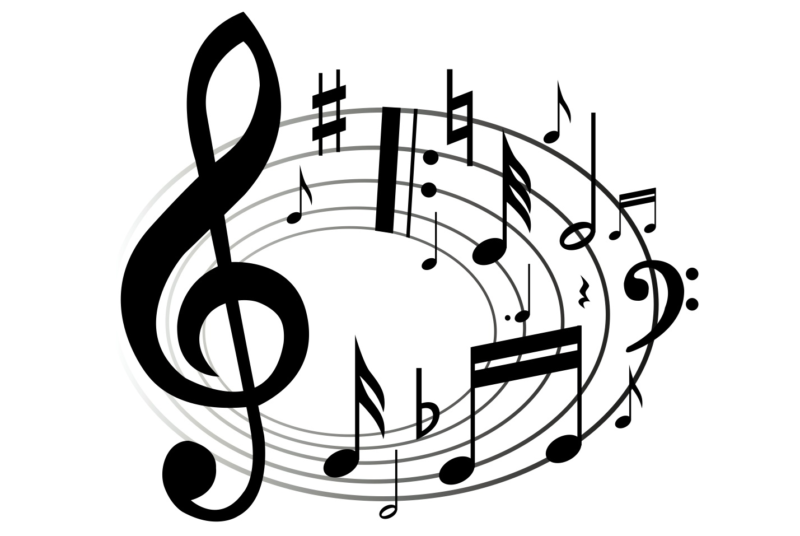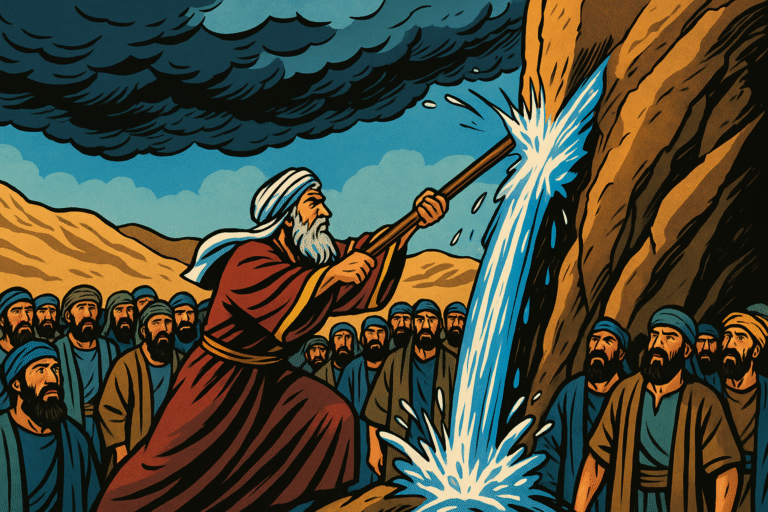Bringing an End to Galut

Learning from King Chizkiyahu's Mistake
Many years ago, during the reign of the righteous king Chizkiyahu, the kingdom of Yehudah was being overrun by the Assyrians. One Jewish city after the other fell to the invaders and the local population of Jews were subjected to unspeakable atrocities. One final city remained unconquered—Yerushalayim. High officials of the Assyrian king, Sancheriv, were sent to Yerushalayim with an ultimatum—surrender or be destroyed.
What was Chizkiyahu's response? He went to the Beit ha-Mikdash and prayed to Hashem for a miraculous salvation (see Melachim Bet 19:14-19). Yeshayah ha-Navi sent word to Chizkiyahu that Hashem had heard his prayer and was going to save the nation (19:35): וַיְהִי בַּלַּיְלָה הַהוּא וַיֵּצֵא מַלְאַךְ יְהֹוָה וַיַּךְ בְּמַחֲנֵה אַשּׁוּר מֵאָה שְׁמוֹנִים וַחֲמִשָּׁה אָלֶף וַיַּשְׁכִּימוּ בַבֹּקֶר וְהִנֵּה כֻלָּם פְּגָרִים מֵתִים (And it was that very night, an angelic messenger [malach] of Hashem went out and struck down 185,000 in the Assyrian camp; and when they [i.e. according to the Metzudat David, Sancheriv and a few survivors] got up early in the morning, behold, they were all dead corpses). Rashi (in his comment to 18:24) tells us that the 185,000 were just the officers, each one in charge of a company of at least 2,000 soldiers. Therefore, Hashem wiped out an enormous army of at least 370,000,000 soldiers!
What was Chizkiyahu's response? It is written in the Gemara (Sanhedrin 94a): לםרבה [למרבה] המשרה ולשלום אין קץ וגו' א"ר תנחום דרש בר קפרא בציפורי מפני מה כל מ"ם שבאמצע תיבה פתוח וזה סתום ביקש הקב"ה לעשות חזקיהו משיח וסנחריב גוג ומגוג ('There will be no end to the abundance of governance and peace' [Yeshayah 9:6]: R' Tanchum said, Bar Kappara in Tzippori expounded, Why is it that every mem that is in the middle of a word is opened [מ] and this one [לםרבה, l'marbeh, 'to the abundance'] is closed [ם]? It is because the Holy One, blessed be He, sought to make Chizkiyahu Mashiach and Sancheriv Gog and Magog). If Hashem wanted to make Chizkiyahu Mashiach, why didn't He do it? As the Gemara answers: אמרה מדת הדין לפני הקב"ה רבש"ע ומה דוד מלך ישראל שאמר כמה שירות ותשבחות לפניך לא עשיתו משיח חזקיה שעשית לו כל הנסים הללו ולא אמר שירה לפניך תעשהו משיח לכך נסתתם (The Attribute of Justice [Middat ha-Din] said before the Holy One, blessed be He, 'Master of the World, If David, king of Yisrael, who recited many songs and praises before You, You didn't make him Mashiach, then Chizkiyahu, who You did for him all these miracles and [yet] he didn't recite song before You, how can You make him Mashiach?' Therefore, the mem was closed).
The closed mem would be a sign for all time that Chizkiyahu had an opportunity to become Mashiach and to bring in everlasting and universal peace, but he let it slip from his hands because he didn't sing songs of thanksgiving and praise to Hashem for His miraculous salvation! Shocking, is it not? One man's failure to sing songs to Hashem has delayed Mashiach all these years.
Do you think it is possible that if we repair this lapse of Chizkiyahu, especially now when Hashem might just want to turn this current war into the fulfillment of the prophecy of Gog and Magog (see Yechezkel 38), Hashem would split open the closed mem and send us our righteous Mashiach?
It is written in the Tikkunei Zohar (Tikkun 21, 51a): בְהַהוּא זִמְנָא דְיִתְמַחוּן חַיָּיבַיָּא מֵעָלְמָא סָלְקָא צְלוֹתָא בְנִגּוּנָא בְּאַרְבַּע מִינִין (At that time [at the coming of Mashiach], when the wicked [i.e. the klipot] will be erased from the world, prayer [tefillah] will ascend through a melody [niggun] comprised of four types of niggunim). Since it's beyond the scope of this article, we can't get into the details of this niggun that is composed of four niggunim, but notice the main point, i.e. prayer does not ascend upward without singing melodies.
The passage in the Tikkunei Zohar continues: אוֹרַיְתָא בְנִגּוּנָא שְׁכִינְתָּא בְנִגּוּנָא יִשְׂרָאֵל סָלְקִין מִגּוֹ גָלוּתָא בְנִגּוּנָא הֲדָא הוּא דִכְתִיב אָז יָשִׁיר מֹשֶׁה וּבְנֵי יִשְׂרָאֵל אֶת הַשִּׁירָה הַזֹּאת לַיהו"ה (Torah with niggun, the Shechinah with niggun, [and] Yisrael will rise up out of exile [galut] with niggun; as it is written [Shemot 15:1], 'Then Moshe and B'nei Yisrael will sing this song to Hashem'). And as explained by Chazal (Sanhedrin 91b): שר לא נאמר אלא ישיר מכאן לתחיית המתים מן התורה (It isn't stated 'sang', rather 'will sing'; from here we learn that the resurrection of the dead is derived from the Torah). In other words, Moshe Rabbeinu will rise from the dead along with all Yisrael and will sing, in the future, this great song of redemption. But the main point that we need to emphasize is that the way for us to rise up out of galut and merit complete redemption is through niggunim. We must sing melodies and songs of thanksgiving and praise, even in times of trouble. And when is the best time for doing this? It is during tefillah, because without niggunim our tefillot don't get off the ground.
So this raises an interesting question. How come so many of our minyanim race through Hallel on Rosh Chodesh (for example) without any niggunim? Perhaps we think that it's not cool to sing Hallel. Or perhaps we have something more important to do, like get to the bank and make sure our money is still there, safe and sound. Maybe we're too self-conscious. After all, look around, how many people in the minyan are singing? Maybe it's not the custom [minhag] of our shul to sing. Minhag!? Yes, we have a minhag to stay in galut. It seems like we're infected with Chizkiyahu's Disease. Great miracles happen around us all the time, every day without interruption, and we just don't make the time to sing. But one may respond in appropriate defense, 'I daven at a minyan where we sing Hallel.' Very nice. But does your minyan give everyone plenty of time to sing through their silent Shemoneh Esreh? Does your minyan take the time to sing through the berachot for the Shema? What about Pesukei d'Zimra? Do we take our time with Pesukei d'Zimra? Notice the following halachah straight out of the Shulchan Aruch (Orach Chaim 51:8): א"א הזמירות במרוצה כי אם בנחת (We are not to say the songs [of Pesukei d'Zimra] hurriedly, rather at a relaxed pace). And notice what the Mishnah Berurah says about this: שלא ידלג שום תיבה ולא יבליעם אלא יוציא מפיו כאלו מונה מעות (One must not skip any word or swallow them rather one must bring it out from his mouth as if one is counting money). What an interesting comparison. We might want to think about that one. And if that's not enough to give us pause, let's read the next halachah (51:9): מזמור לתודה יש לאומרו בנגינה שכל השירות עתידות ליבטל חוץ ממזמור לתודה (There is reason to recite the 'Psalm of Thanksgiving' [Tehillim 100] with a niggun because all songs of the future will be canceled except the 'Psalm of Thanksgiving').
Perhaps one will say, 'You're not being realistic. I have a life to live. I have legitimate things to do. I have children to take to school. I have a train to catch so I'm not late for work. I can't spend all morning davening Shacharit.' This is a valid response. But we'll simply ask, 'What is more important than getting the Jewish People out of galut, meriting complete redemption, restoring the Shechinah to her dwelling place, bringing Mashiach, experiencing world peace, and ending suffering and death?'
How do we picture the exodus from Egypt? The Jews are suffering terribly for a very long time, many decades. Finally, after many years, they decide to scream out to Hashem in the midst of their grief, Hashem sends them Moshe Rabbeinu and he brings on the plagues to destroy Egypt and free the Jews. But have you ever asked yourself, Why did it take them so long to call out to Hashem? Think about it. If you were suffering terribly, would you wait for decades before screaming out to Hashem to be saved? Were they all dumb and mute?
The answer is found in Tehillim 105:43: וַיּוֹצִא עַמּוֹ בְשָׂשׂוֹן בְּרִנָּה אֶת־בְּחִירָיו (And He brought out His nation with exultation/rejoicing [sasson], His chosen ones with jubilant song [rinah]). Who were these 'chosen ones' who correctly knew and acted upon that knowledge that redemption only comes through happy singing? It is as the Malbim writes in his commentary to Sefer Tehillim: כמ"ש חז"ל במכילתא שהצדיקים בחירי ה' אמרו שירות ותשבחות (As Chazal said in the Mechilta, that the righteous ones [tzaddikim], the chosen ones of Hashem, recited songs and praises). And this is the secret of what is written in the Nevi'im (Yeshayah 55:12): כִּי־בְשִׂמְחָה תֵצֵאוּ וּבְשָׁלוֹם תּוּבָלוּן (For with happiness [simchah] you will go out [of galut], and with peace you will arrive). In other words, we need simchah to go out of this long and bitter galut, and we need peace (peace within each and every one of us and peace between each of us) to get to where we want to go. These are preconditions or requirements of redemption, not the result of it. When Hashem heard those chosen few, the select tzaddikim in Egypt singing their prayers with jubilation—even in the midst of the bitter bondage and slavery—then he sent them Moshe Rabbeinu to redeem His people.
All of our sources (Scripture, Kabbalah, Halachah and Midrash), and we have only scratched the surface, say the same thing. The only way out of this terrible galut will be through singing and prayer and happiness all tied together into a single unit.
Yes, it's difficult. Especially during a war, especially when there are unspeakable tragedies, a literal shoah. We are not blind to that, nor making light of it. But our sources speak truth to instruct us and guide us in the ways that we should go. Those sources are telling us exactly what is our work [avodah] right now. And it's simple and not simple all at the same time. That's why it's an avodah.
For those who know the song Celebrate by the Hasidic pop rock band 8th Day, you will realize that the song is exactly what we have been explaining in this article. If you don't know the song, after Shabbat go find it and listen it. It's a really great song. Here are the opening lyrics, based on Tehillim 126: “שִׁיר הַמַּעֲלוֹת בְּשׁוּב יְיָ (Shir ha'maalot b'shuv Hashem), Here we go now, here we go again, הָיִינוּ כְּחֹלְמִים (Hayinu, hayinu k'cholmim), It's like you're sleepin' sleepin', אָז יִמָּלֵא שְׂחוֹק פִּינוּ (Az yimalei s'chok pinu), There's a smile deep deep within you, וּלְשׁוֹנֵנוּ רִנָּה (Ul'shoneinu rinah, rinah), This songs for singin' rinah…Why wait to celebrate…Clap now and stamp your feet.”
Indeed, it's time to split open the closed mem. It's time for singing rinah.






